Read other peoples’ reviews of Log Horizon and a pattern emerges, whereby your enjoyment of the series seems predicated on your level of involvement with MMORPGs and by how much you want an anime series to capture the feelings they invoke. So on the one hand you have those who have played since the heady pioneering days of Ultima Online and Everquest and have moved past the day to day minutiae of MMO activities with an elevated focus on community and meta aspects to the experience. On the other, you have those who seek the thrill of loot, of building one’s character, min-maxing and optimising and savouring the Pavlovian new-level ping.
Log Horizon contains characters from that entire spectrum but as a series, favours the former over the latter. The concept of characters becoming trapped within an MMO is definitely not unique but its approach to telling a story within that structure is. Perhaps most crucially though is that the series seems to understand which core tenets of MMOs make a good story rather than doing the opposite trying to apply a story to an MMO.
It’s a subtle distinction but it’s similar to the idea that, as Digibro in his excellent video points out, Log Horizon isn’t a series predicated on characters being trapped inside an MMO, but that an MMO’s world has become reality for the characters. It’s taking the rules and systems within an online game and spinning them out in a large-scale hypothetical “what if” situation. The “being trapped” part is neither the focus of the story nor the driving force of the characters, the more immediate situation of surviving within this new world takes priority. In fact this concept is taken to such extremes that no character ever talks about their lives “outside” of the new world and any flashback histories are always of events that happened within the game prior to it becoming real.
The exception to this is with a pair of twins who are gifted an excellent, wordless vignette - barely a few seconds long - that is so easy to miss and so endlessly revealing towards their characters that it is sheepishly shown again in the next episode, lest you missed in the last. Shiroe as well, ostensibly the protagonist of the show, is briefly shown at his computer, serving the dual purpose of contextualising the MMO itself - in this case called “Elder Tales” - as a standard keyboard-and-mouse affair, but is only revealed during weighty discussions about the very nature of the world itself.
It is this aspect that proves to be the bread and butter of the series and is why many people were frustrated with its lack of action. More than anything Log Horizon is built - from world to character - on discussion; be that round a table or round a campfire, whole episodes are dedicated to conferences on trading, on laws of the land, on monster hunting, on guild affairs. There is action of course, a massive thousand-person raid in the last third of the series is a particular high point, but by and large this is about talking.
And why wouldn’t it be? The original light novels were after all written by the same person who penned the Maoyuu Maou Yuusha scenario and the same level of astute detail is applied here. The concept here however allows for a greater scope, specifically an exploration of humanity and the oft misused term of the “human condition”. It’s about what happens when you remove the threat of death and disease from a group of people who, when compared with the local populace, are demigods. Able to wield immense powers and command huge fortunes while the NPCs, the People of the Land, are now bestowed life and emotion outside their conditioned, computer-aided responses. What goals do these new inhabitants of the world seek? How do they govern themselves?
These are all questions the series poses and, to a greater or lesser degree, suitably answers thanks primarily to serial schemer Shiroe. So a large chunk of the series’ second act deals with the politicking of the nobility of the People of the Land. They are mortal, they work for their food and they are born into an antiquated caste system, all of which these Adventurers are not. Of course these Adventurers who just showed up one day are met with distrust. They are not just physically intimidating but represent an ideological antithesis to the natives, the People of the Land. It’s non-obvious questions like this that the series thrives upon and is why it is deliberately divorced from the shounen-esque “must get stronger” mentality that, on the face of it at least, MMOs are about.
What this means in practical terms however is that the series’ structure is immune to the peaks and troughs of excitement that are emblematic of other series. There is no “action episode” followed immediately by a “talky episode”, there is action and there is talking and there is excitement but it is so expertly meted out, holding that anticipation and buzz across two, even three episodes, that when one ends there’s genuine frustration there’s not more. Episodes don’t need to end on a cliffhanger for you to carry on watching because you’ve seen how this situation has developed, you’ve watched the characters plot and scheme and manoeuvre and fight and you just want it to keep going.
A lot of that is thanks to the gently expanding cast of characters who go from a trio - Shiroe, Naotsugu and Akatsuki - to a party, to a guild, to a city, even an entire country. Focus slips from one group to the next with such deftness that when it comes to that large raid, when threads twelve episodes in the making come together, there is never a sense of confusion or disjointedness, only awe. That in itself is amazing but being able to blend superb character drama into epic world shaking fights is almost beyond belief.
It’s the buildup to that payoff however that likely proves to be the stumbling block for many. Early episodes especially spend a not insignificant amount of time explaining MMO terminology and tactics in order to bring non-players up to speed. These parts noticeably drag if you are even partially familiar with the concepts being presented but serve as touchstones for the story to come, along the lines of “here are the systems we’re going to be using next”. Thankfully these explanations are pared back as the story progresses and are better incorporated into it, feeling less like a lecture and more contextually appropriate.
Watching all of the different strands come together is a large part of the appeal, especially so with characters like Shiroe and Minori, the former of whom we watch carve out a position of respected authority thanks to judicious planning, the latter follows in Shiroe’s footsteps, growing from the timid girl who was in indentured servitude to a guild to a trusted party leader. These aren’t the only two character who change and grow but even ones like Akatsuki, the diminutive ninja who pledges her allegiance (and secretly her affections) to Shiroe, comes out of the shadows both figuratively and literally in the last story arc, acknowledging and attempting to combat her lack of presence throughout the other episodes.
Although it may seem that Shiroe is the prototypical dense harem core - and indeed by the end several ladies are fighting a clandestine war for his feelings - there is the strong sense that their fondness for him is justified, not only by his obvious and demonstrable skills but because they’re fully formed characters themselves. Even Henrietta who, like Shiroe keeps her emotions closely in check, has spent time with him and both share a mutual respect for one another. It helps too that there is evidence of romance blossoming elsewhere in the cast list and that these stories don’t overtake others in terms of importance.
Log Horizon isn’t just poe faced musings on humanity and molasses thick MMO terminology though: a large part of the style of the series is held in the super-deformed faces of every character and the slapstick humour that usually accompanies them. Sure it does drive a few lacklustre jokes into the ground, but the series never seems to lose that knowing sense of daftness when a samurai takes down a boar ten times his size, or when a griffin tries to eat Naotsugu’s head, or that when you get right down it, this new society of Adventurers is comprised of video game players. You might have all sorts behind that categorisation - otaku, housewives, salarymen, armchair strategists, curious economists - but this is a society of nerds which means when the glasses push is used, and then overused, the series is in on the joke.
There is so much more going on in Log Horizon than all that I’ve detailed so far, but it’s mostly just a longwinded way of establishing that this is a phenomenal series. It’s not a mistake that the second series - itself rumoured to be twenty five episodes - is already well underway, after an already generous uninterrupted twenty five episodes for this first one. It is exceptionally good with a story that goes from existential musings on HP and MP through to goblin-slaying scenery-scorching magic spells and damn fine looking hamburgers in between. There are missteps of course: Rudy’s story is somewhat spoiled by the opening which itself is an acquired taste given the rather eclectic lyrics, the visuals are solid if unimpressive, Minori and Serara’s characters tended to merge together as they both occupy the “wide-eyed schoolgirl” pigeon hole, and as already mentioned, some jokes are run ragged with overuse.
Don’t misunderstand though, you should absolutely watch Log Horizon regardless of your experience or feelings towards MMORPGs. The series is as much about MMOs as you want it to be; levelling may not be touched upon and loot may be absent but if you can appreciate a varied cast of stellar characters and a story that can reasonably summon up comparisons with Lord of the Flies, Log Horizon is for you. If you’re searching for a hero’s journey though or cannot appreciate the majesty of a group name like Debauchery Tea Party, this is perhaps not for you; other anime, ostensibly about MMOs, may be a better fit.
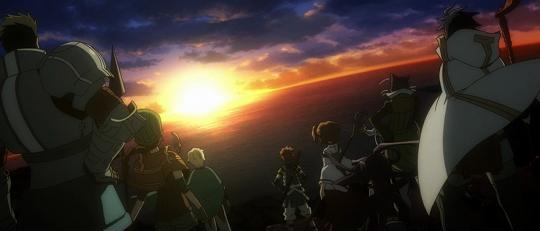
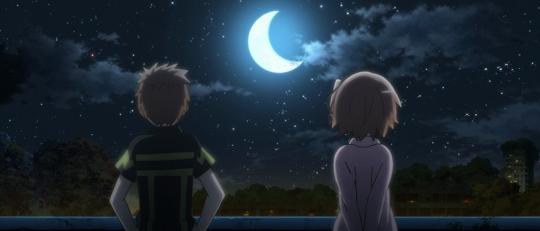
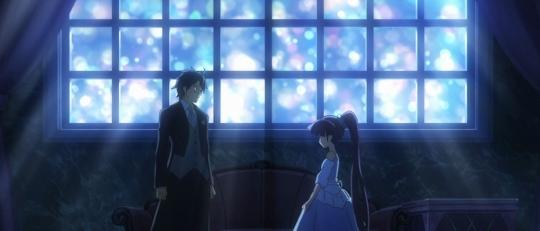
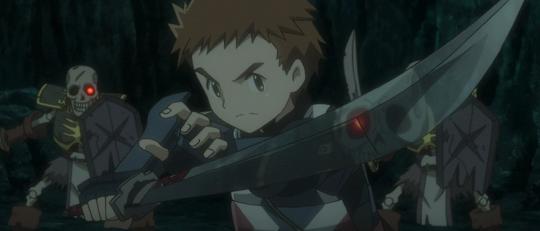
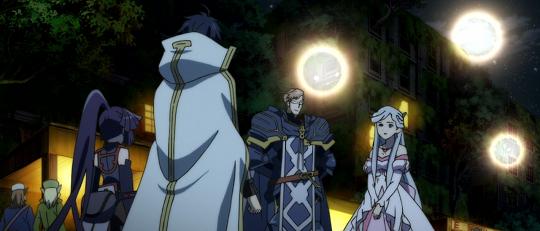
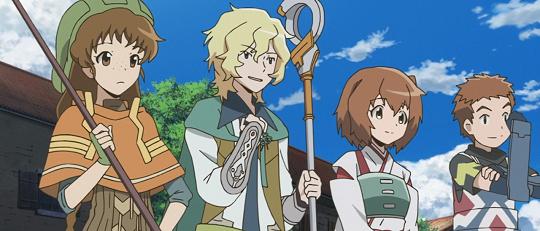
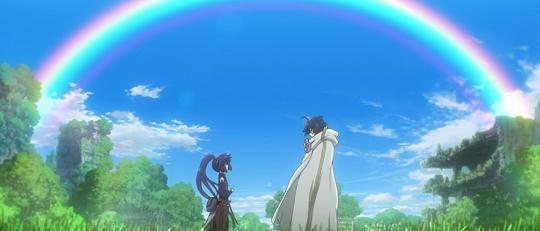
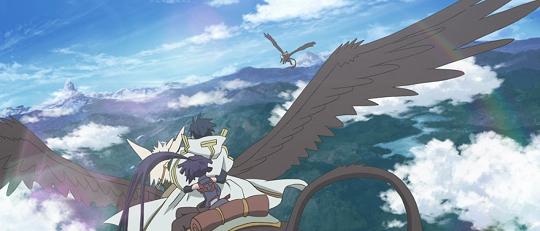
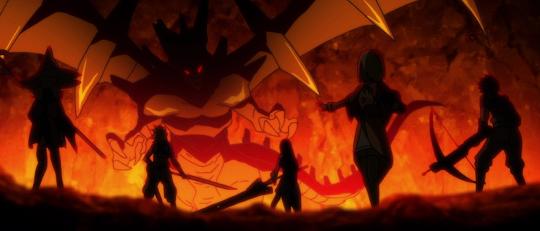
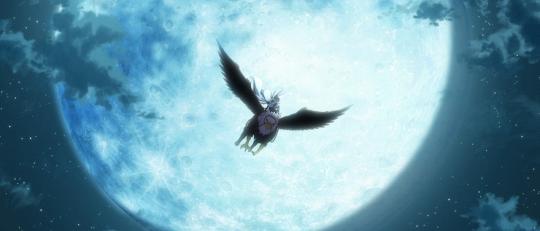
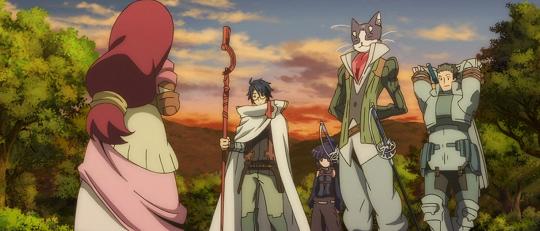
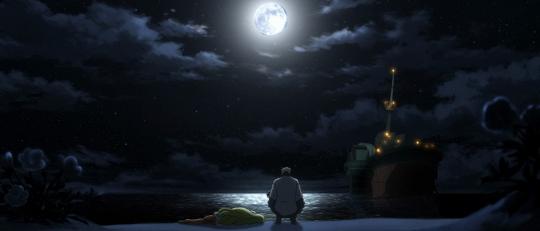
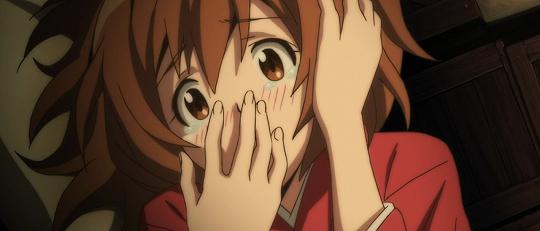
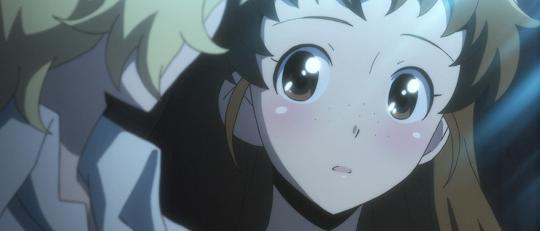
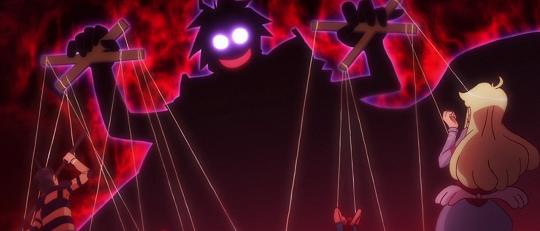
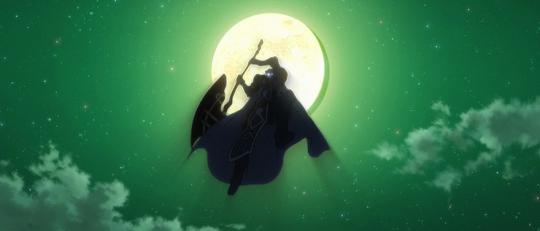
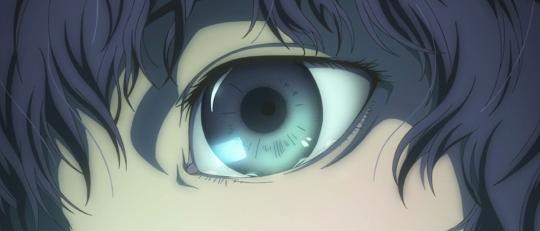
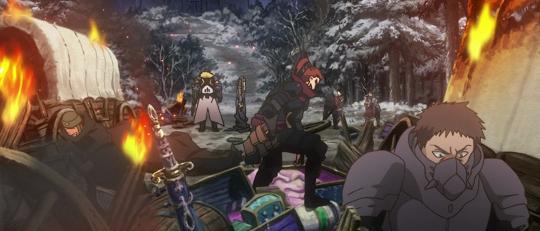
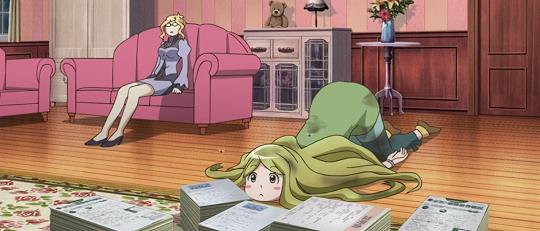
On the one hand, the players have to adapt to the new world, but on the other hand the people of the land have to adapt to the newcomers. This is only gradually emerging over the series. So on one axis of the matrix we have a straightforward clash of cultures.
On the other axis of the matrix, though, there's a different problem. The people of the land are living their lives. The adventurers are doing... what? What they used to do was play a game. Now that game is real, and the consequences aren't really any worse than they were. This issue is embodied in the taste of food, for example. If you treat the new situation as a game, and that is all you have, your life will have no meaning.
So are we in a situation where we have to accept that the game is real? If we prepare food the way we used to, it tastes good, right? But then the issue of memory loss emerges. The more real this world becomes, the less real the other world becomes. The person is caught in the middle. To what extent is this still a game? All your mind-habits, what you take seriously and what you don't, have been shaped in the "real" world... the old world. How can a person from our world
take a world seriously, where you kill a monster, it disappears and leaves money behind?
In a story about adaption, the people of the land would be the other ones, the ones you have to adapt to. But they're a lot more like what the adventurers used to be. What they really have to adapt to is their new selfs; but the twist is that their new selfs already come with a set of habits; it's just that those habits used to be very contextual. In a sense the adventurers, once students and office clerks and whatnot, have suddenly become faeries: magical creatures, all song and dance. Not even death is final. Life's a game.
Boredom/meaninglessness may have only been a topic early on, but I do think it provides an important frame for the show. I think the key interest of the show is how a make-belief world differs from the real world. What can we learn by playing? What can we unlearn by playing too much? I think those sort of questions are what determines plot choices. At least so far, the show has made sense to me when viewing it like that. It explains why the story de-emphasised initial confusion. It explains why the story focuses on memory loss as a problem, without focussing in any detail on the content of those memories. What do we retain, what do we lose, when things no longer feel real?